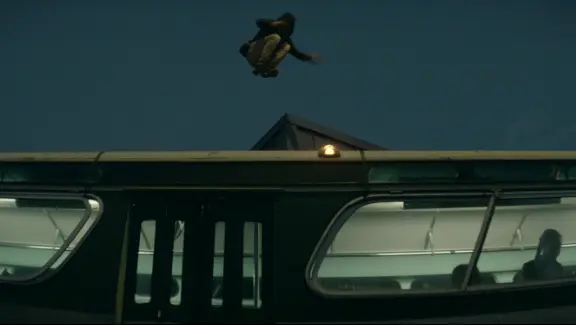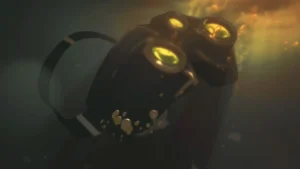Summary
A great dystopia, which is fast-paced, bleak and raises some interesting points. A little confusing and muddled at times, there’s still plenty to enjoy here.
According to Google, the definition of the word dystopia is “an imagined state or society in which there is great suffering or injustice, typically one that is totalitarian or post-apocalyptic.” Certainly, there is a great deal of suffering and injustice felt by the characters in S. A. Halewood’s latest film, Division 19. Halewood’s film is a compelling mash-up of genres and it’s clear that she has been influenced by many previous dystopia texts from the likes of George Orwell’s 1984, Neill Blomkamp’s filmography and Stephen King’s The Running Man. Like Blomkamp’s District 9, Halwood proves that you don’t need a big budget to create a great, compelling and thought-provoking film.
The film is set in the year 2039, where anonymity is seen as a crime and where those who aren’t registered will disappear without a trace. With jails overflowing, Head of Central Control Lyndon (Linus Roache) has brought in a data-warehousing specialist, Neilsen (Alison Doody), to turn jails into online streaming services where the public gets to choose what prisoners eat, wear, watch and who they fight. You can even adopt your very own felon. In fact prisoners are seen as the new reality TV stars, and one of these ‘celebs’ is a prisoner called Hardin Jones (Jamie Draven). Hardin actually went to jail defending his younger brother, Nash (Will Rothhaar), who is looking to break Hardin out of prison.
The prison ‘TV Show’ is so successful that Neilsen wants to move the ‘show’ to a whole town (filled with prisoners), providing subscribers even more choice. Hardin is set out to be the star of this new ‘reality drama’ but as he’s being transferred, Nash and the team ambush the convoy. Hardin’s brain is scrambled from the amount of drugs that have been pumped through his veins and he escapes into the streets, unaware of who Nash is and what is going on. Hardin must outsmart the authorities, and keep out of sight (something that is impossible in a world where giant blimps in the sky record everyone 24/7). What proceeds is an elaborate chase which will keep you hooked from start to finish.
Division 19 has a lot to say about the invasion of privacy and mass surveillance. There’s no denying the fact that we live in a society where CCTV cameras are on every street corner. Certainly, questions have been raised in the past regarding just how far governments are going to keep an eye on all of us (just look at the case of Edward Snowden‘s 2013 global surveillance disclosure). As technology grows, so does the threat of mass surveillance.

The fact that a world like the one seen in Division 19 could potentially exist is chilling. In the film, Hardin’s every move in prison is recorded, and the mass public seemed to eat it all up without even considering the damage it is doing. This is a reflection on how we use social media to document every part of our lives, broadcasting ourselves to the world without cherishing certain memories. Halewood certainly has a lot to say, and has used the dystopian genre to great effect, as a commentary on how societies view the lower classes and how governments value their citizens.
Division 19 may have a fairly moderately sized budget (IMDb lists its budget at $2,000,0000), but it looks like a much bigger picture, clearly showing the great deal of time and effort that the filmmakers have dedicated to this picture. The film’s special effects are also rather impressive. Ben Moulden’s cinematography also stands out, with great use of point of view, high angles, bird’s-eye view and fish-eye lens which help capture this idea that the people of this world are constantly being watched.
The only real issue with the film is it’s slighty confusing plot which seems rather overly complicated for the sake of it. The ending feels rushed, and the side characters seem underdeveloped with very little to say or do. There is something about Jamie Draven which is alluring; he certainly has the right amount of talent, personality and looks to be the leading man. Fellow cast members Linus Roache, Alison Doody and Lotte Verbeek also give strong performances, as well as Will Rothhaar. It’s just a little bit of a shame that the film’s runtime is a little short. It would be interesting to see this as a TV/Web series as there’s plenty to explore here.
We should see the nightmarish world of Division 19 as a warning; forget Big Brother watching you, we should fear the entire world watching us. Full of action, spirit and style, this is a film which has the makings of a cult classic. Hopefully Halewood’s vision of the future doesn’t become a reality!




